We are seeking a diverse Board to oversee the work of the CHS Alliance, ensuring its strong governance and providing expertise and support to achieve its mission. Our Board should reflect the communities and members we serve (such as gender, ethnicity, geographic location), different sizes of NGOs, and people directly affected by war or humanitarian crisis.
We are also looking for a range of skills including leadership, experience working with affected populations (i.e. humanitarian directors), financial management, human resources, fundraising, advocacy, and experience working as a donor.
Members are asked to consider these attributes before selecting the 7 full members representatives (maximum) and 1 independent Board member candidate they wish to vote for.
The twenty-two candidates standing in the 2024 CHS Alliance Board elections are listed below. To learn more about each of them, please click on the candidate’s name.
If you have any questions or concerns about the Board election process, please contact us at ga@chsalliance.org.
Full member candidates
| Name | Organisation | Candidates’ location |
| Mr. Ahmed Mohamed Abdinasir | Save Somali Women and Children | Somalia |
| Mr. Mohammad Amad | Initiative for Development and Empowerment Axis (IDEA) | Pakistan |
| Ms. Palwashay Arbab | Community World Service Asia | Pakistan |
| Mr. Ramesh Babu | Evangelical Fellowship of India Commission on Relief (EFICOR) | India |
| Mr. Brian Beckett | British Red Cross | UK |
| Mr. Julius Bigirwa Bitamazire | LM International | Sweden |
| Mr. Michael Byamukama | REPSSI Uganda | Uganda |
| Ms. Anani Ghida | ABAAD – Resource Centre for Gender Equality | Lebanon |
| Mr. Osman Ilyas Hassan | TAAKULO | Somalia |
| Mr. Muhammad Khalil | Suk Development Foundation | Pakistan |
| Ms. Marleen Levina Masclee | Trocaire | Ireland |
| Ms. Zeina Mohanna | Amel Association International | Lebanon |
| Mr. Michael Wickham Moriarty | Plan International | UK |
| Ms. Anna Karoliina Muinonen | Finn Church Aid | Finland |
| Ms. Amsale Mulugeta Alemu | Education for Sustainable Development (EDS) | Ethiopia |
| Ms. Susan Otieno | ActionAid International Kenya | Kenya |
| Ms. Sarah Pelicaric | CAFOD | UK |
| Ms. Fozia Rajput | Fast Rural Development Program (FRDP) | Pakistan |
| Mr. Youseph Shattahi | Gopa Derd | Syria |
| Ms. Catherine Skehan | Action Against Hunger | UK |
| Mr. Thomas Stahl | Ena (formerly Tearfund Switzerland) | Switzerland |
Independent candidates
| Name | Nominating Organisation | Candidates’ location |
| Mr. Michael Barnett | Lutheran World Federation | USA |
Successful candidates would join these current Board members whose terms continue to 2025
| FULL MEMBER | |
| Name | Organisation |
| Ms. Coleen Hemskeerk |
Act Church of Sweden
|
| Ms. Rehema Kajungu |
TPO Uganda
|
| Ms. Carly Sheehan |
Oxfam
|
| INDEPENDENT | ||
| Name | Organisation | Nominating Organisation |
| Ms. Gloria Soma | Titi Foundation | |
| Ms. Yegana Guliyeva | None | |
FULL MEMBER CANDIDATES
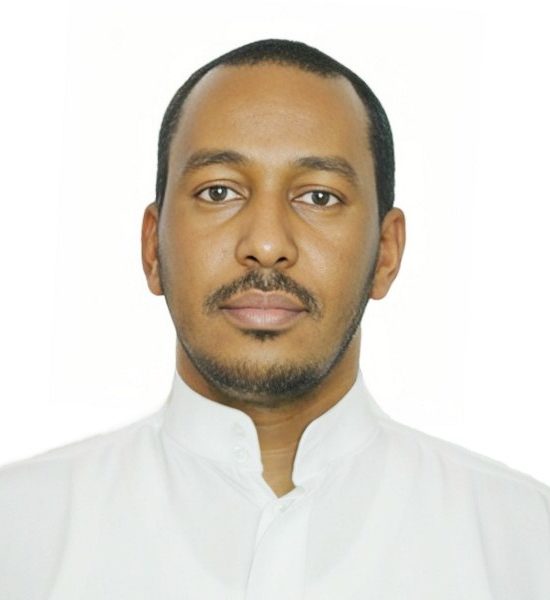
Ahmed Mohamed Abdinasir
Position: Deputy Director and Head of Programs
Organisation: Save Somali Women and Children
There are many reasons why CHS alliance is very important to the sector. Among the many the most important is ensuring quality and accountability to the affected people which inturn contributes to a inclusive sustainable future. Setting standards that are acceptable globally will improve local creativity and innovations to local challenges.
What motivates you to join the Alliance’s Board?
The mission of my organization is significantly related in the CHS alliance beliefs and standards. I believe my experience in the diverse humanitarian sector will shape the CHS alliance future. Having served as a member of the localization task force comprising representatives of local actors, INGOs, Donors and UN agencies in Somalia. Also served as a co facilitator for dialogue processes about localization in Somalia by the ‘’localization workstream’’ of the Grand Bargain. Served as advisory board member of the UN Somali humanitarian pool fund in Somalia which has tremendously improved local actors funding over the years. Being a member of the Humanitarian Programme Cycle (HPC) Steering Group which is the reference group at global IASC level for the HPC process representing national NGOs. With the above experience in the humanitarian sector I believe I will strongly improve the CHS alliance especially on fund raising and advocacy as well as spearheading the network growth of the alliance.
What experience do you have that is related to our mission?
I have significant experience in bodies that promote quality programming, setting policies and standards that put people at the center.
Being a member of the advisory board of the UN Somali humanitarian pool fund in Somalia which enhance inclusion and consideration of AAP in partners’ programming to ensure that recipients of aid are meaningfully engaged in all stages of the project cycle, giving them a voice in decisions that affect their lives, and that aid is tailored to the local context. We also ensure that the relevant mechanisms are in place to detect PSEA cases both internally and externally. The SHF work with partners to strengthen their PSEA systems by (i) providing guidance to implementing partners (ii) encouraging partners to use the PSEA checklist and (iii) ensuring that implementing partners, beneficiaries, and communities are aware of the reporting mechanisms available to report SEA, to minimize the risks of SEA for affected people.
I served as a member of the Humanitarian Programme Cycle (HPC) Steering Group whose role was to formulate policy, set strategic priorities and mobilize resources in response to humanitarian crises meant to improve the dignity and rights of people at risk and affected by disaster and conflict
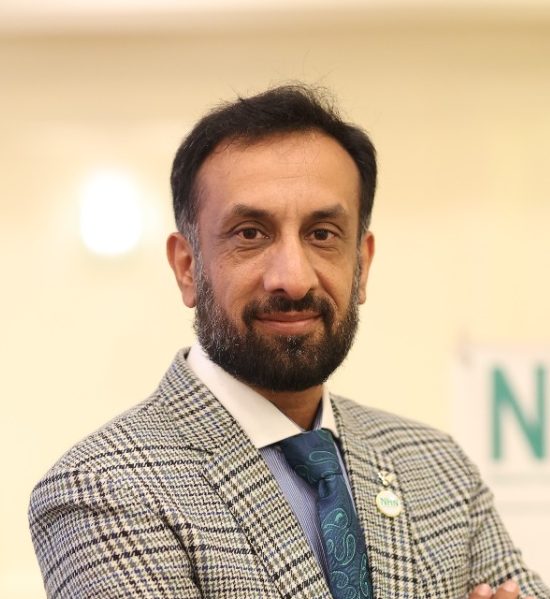
Muhammad Amad
Position: Executive Director
Organisation: Initiative for Development and Empowerment Axis (IDEA)
The whole philosophy of the aid sector is to support people in need and CHS is a movement to raise standards of aid by putting the people at the centre that place CHS at the centre stage of the whole system. CHS is speaking of value, standards, accountability mechanism, tools and techniques based on commutative knowledge and scientific methods. CHS is building on the fast growing knowledge and practices and taking the sector in coherence on agreed upon principals.CHS provide platform to discuss new avenues of raising standards and a platform to discuss the different dimensions of the current principals.
What motivates you to join the Alliance’s Board?
CHS is speaking for the people so do I, I am people’s advocate and my mission and passion is to struggle for people’s rights especially of those who are affected and downtrodden. This struggle is very visible through out my journey for the system change. Ensuring standardization and mutual accountability mechanism vertically but also horizontally should be the salient feature of the system change otherwise the efficacy, efficiency and approprieteness cant not be ensure.CHS is the recognized plateform whereby I can learn and contribute to the philosophy and mechinics movement of change.
What experience do you have that is related to our mission?
After master in political science, I co-founded and leading IDEA a local organization in 2003. since, I served in humanitarian crises (natural, conflict and complex) in Pakistan while being affected as lost family members, friends and colleagues in militancy crises in 2008-09 and 2014 and residence and office washed away by 2010 flood.
I also contributed in the formation and establishment of National Humanitarian Network (NHN)-Pakistan, a network of 209 humanitarian organizations. I have been advocating for civic spaces, humanitarian governance, principles, and localization as a member of; Grand Bargain localization workstream, advisory board of UN Pool fund, HCT, trustee of START Network, leadership council of READY Pakistan and A4EP, Asian Local Leaders of NEAR-Network
CHS is speaking for the people and so do I, I am people’s advocate and my mission and passion is to struggle for rights of affected and displaced population. My struggle and experiences are fully aligning with CHS-Alliance. Ensuring standardization and mutual accountability mechanism vertically horizontally should be the salient feature of the aid system, otherwise the efficacy, efficiency and appropriateness may not be ensured. CHS-Alliance is the recognized platform whereby I can learn and contribute to the philosophy and mechanics of quality aid system.
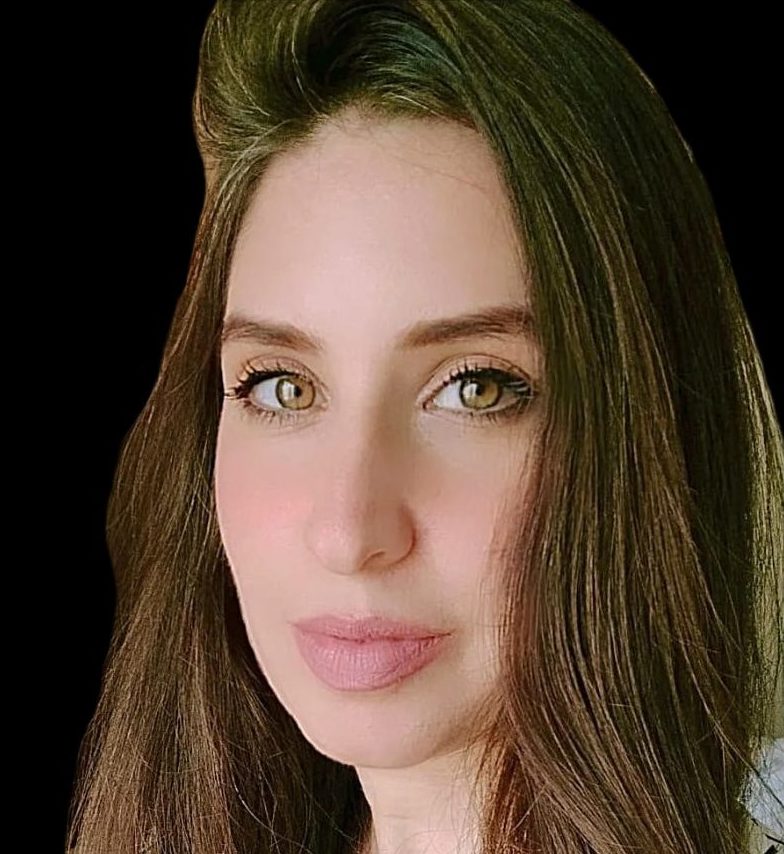
Palwashay Arbab
Position: Head of Communications
Organisation: Community World Service Asia
The CHS Alliance works towards enhancing humanitarian quality and accountability through the Core Humanitarian Standard (CHS). By adhering to these standards, organisations can ensure that their aid is effective, efficient, and accountable to the people they serve. This builds trust and credibility with donors, partners, and affected communities, which is essential for successful humanitarian and development initiatives. The CHSA focuses on strengthening local capacities which help create more resilient communities that are better prepared to handle crises. It works with a global network of member organisations to influence policy and practice and reduce sexual exploitation, abuse, and harassment (PSEAH) in the aid sector.
What motivates you to join the Alliance’s Board?
CWSA has a long history of working towards promoting accountability and bringing the voices of the communities to global networks like Sphere and CHSA and we would like to continue doing that. The CHS Alliance’s focus on accountability and participation aligns with my passion to serve communities in the most dignified ways.
As a board member, I will amplify grassroot voices, challenges, best practices and local knowledge at a regional and global level and will contribute to the strategic direction, governance, and oversight of the alliance, ensuring that it fulfils its vision, mission, and objectives. I see this as a great opportunity to learn from fellow board members and an intellectually rich organisation such as the CHSA. The opportunity to make a tangible impact on the lives of affected populations is incredibly motivating. By joining the board, I will influence policies and practices that directly benefit those in need. Being on the board provides opportunities for professional growth and networking which will enable me to collaborate with other leaders in the humanitarian sector, share knowledge, and learn from their experiences.
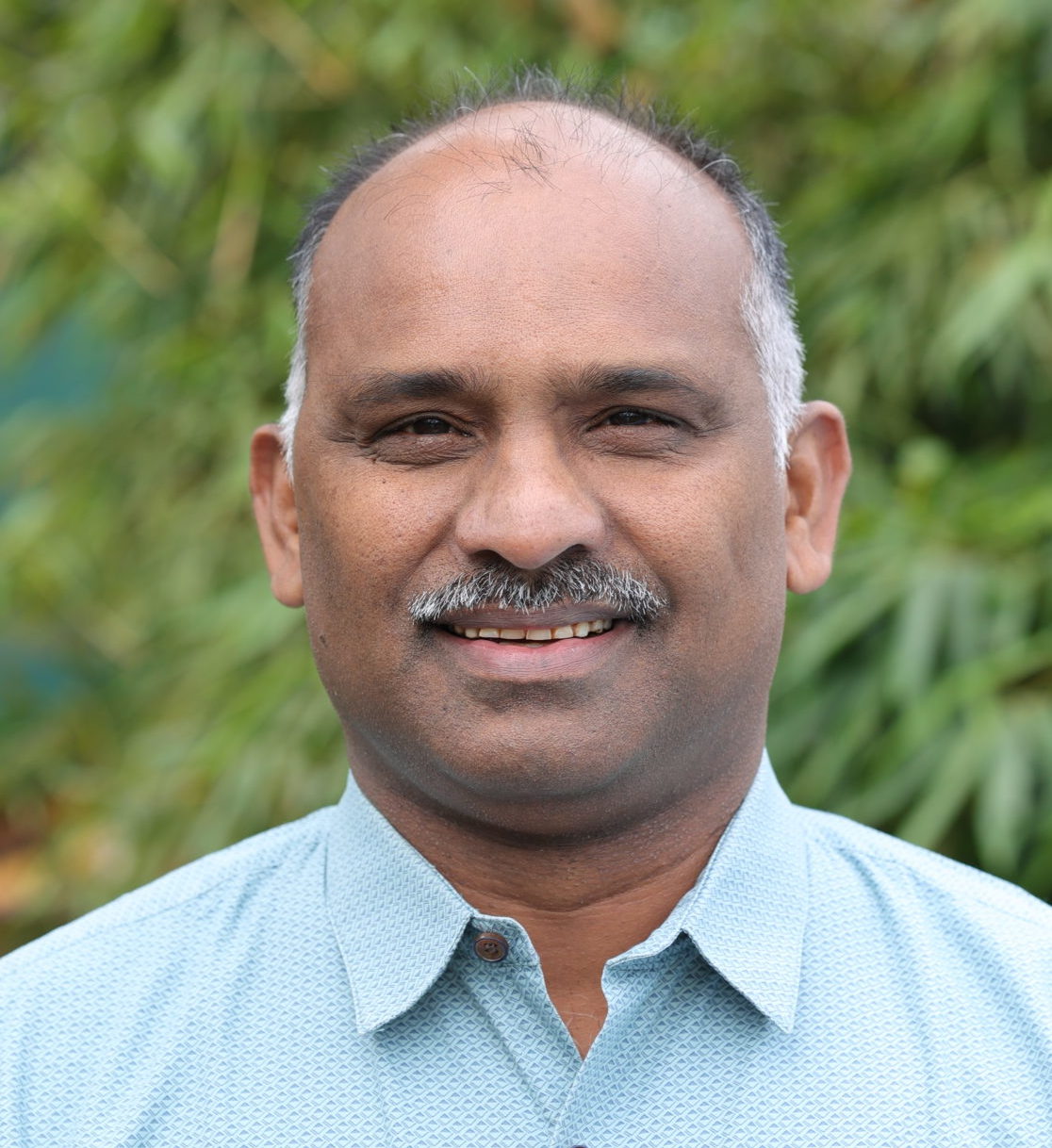
Ramesh Babu
Position: Executive Director
Organisation: Evangelical Fellowship of India Commission on Relief (EFICOR)
The CHS Alliance is crucial to the humanitarian sector because it sets the benchmark for accountability, quality, and effectiveness in humanitarian action. By promoting the Core Humanitarian Standard, the Alliance ensures that organizations adhere to principles that protect the dignity, rights, and safety of affected populations. It fosters a culture of continuous improvement, enabling organizations to deliver more impactful and equitable assistance. The Alliance’s role in advocating for these standards ensures that the sector remains accountable to those it serves, enhancing trust and credibility among stakeholders.
What motivates you to join the Alliance’s Board?
My motivation to join the CHS Alliance Board stems from a deep commitment to enhancing the quality and accountability of humanitarian action. Having led a CHS Certified organization, I have witnessed firsthand the transformative impact of adhering to these standards. I am driven by the opportunity to contribute to the global effort of promoting these principles, ensuring that humanitarian responses are effective, ethical, and centered on the needs of affected communities. Joining the Board would allow me to share my experience, collaborate with like-minded leaders, and help shape the future of humanitarian action.
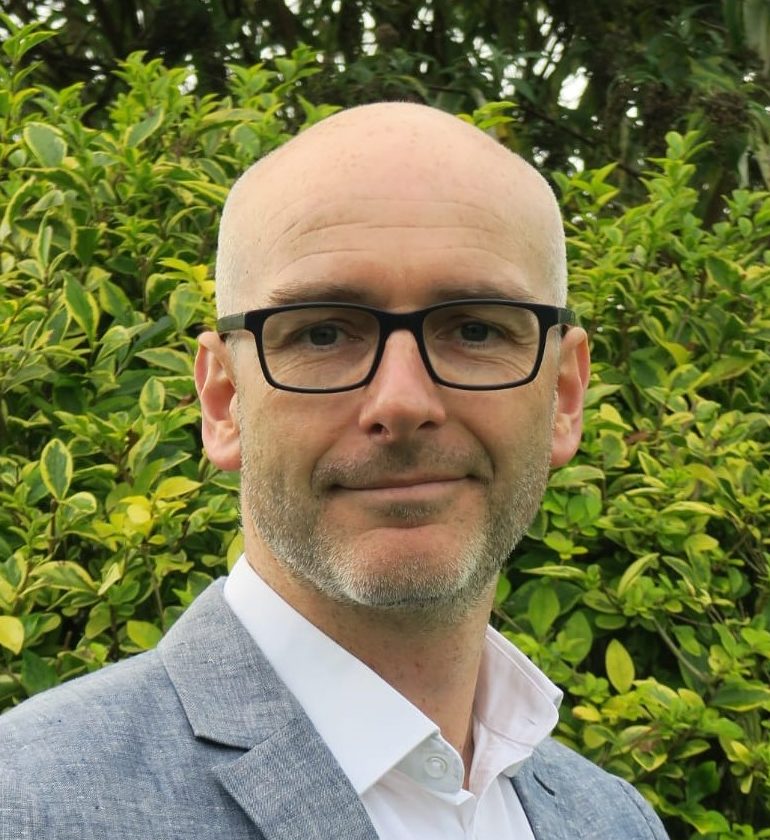
Brian Beckett
Position: Director of Performance and Accountability
Organisation: British Red Cross
The CHS Alliance offers an ambitious yet attainable framework for organizations working with affected populations, defining “what good looks like.” It serves as an enabler, guiding and encouraging members in their ongoing organizational development. By providing a robust evidence base of best practices and areas for improvement, the CHS Alliance supports its members as partners towards a shared goal. Additionally, it establishes a common reference point, ensuring like-minded organizations use consistent language and logic—a valuable asset in our highly diverse sector.
What motivates you to join the Alliance’s Board?
The relevance of the CHS Alliance has never been greater. With renewed interest in locally-led action from NGOs and donors, there’s an opportunity to accelerate the realization of the Alliance’s vision and mission. By transforming how development and humanitarian programs are planned and delivered in collaboration with communities, we can increase ownership, relevance and impact. I believe that by joining the Alliance Board that I could support the organization to both seize this opportunity and ensure the organization’s continued evolution to remain relevant for potential new members.
What experience do you have that is related to our mission?
Brian has dedicated 20 years to supporting communities in development and humanitarian response, which has profoundly shaped him. He has held leadership roles in Vietnam, Thailand, Rwanda, and Nepal, as well as positions at global headquarters and in the UK. Since 2022, he has been the Director of Performance and Accountability for the International Directorate at the British Red Cross. Previously, he worked with child rights organisations Plan International and Save the Children, as well as Christian Aid. Throughout his career Brian has valued integrity, mutual respect, and collaboration with diverse teams and local partners, promoting meaningful community engagement. His professional focus has been on institutional funding, programme management and quality, strategy and planning. He has previously worked with most major donors and continues to work closely with FCDO supporting the IFRC Network’s continuous improvement in accountability to affected populations. As a trustee for two local organizations, Brian contributes to policy development, fundraising, and organizational improvement, promoting locally led action in his community. He is committed to pursuing organizational improvement and enabling locally led organizations to engage with the Core Humanitarian Standards.
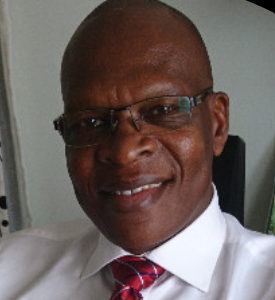
Julius Bigirwa Bitamazire
Position: Global Head of CHS
Organisation: LM International
The Core Humanitarian Standard is the only standard that seeks to empower crises affected individuals to hold service providers to account to the people they intend to serve. Many service providers ie NGOs hold a lot of power because they come in with money. Through the CHS Alliance the standard of aid is raised by putting the target community at the centre of Humanitarian and Development action, hence making the process of accountability to affected communities using power responsibly possible.
What motivates you to join the Alliance’s Board?
The CHS Alliance forges to empower people affected by crises to access their Rights as befits. Organisations are helped through the CHS Alliance to be answerable to people affected by crises especially for the decisions they make and how these decisions affect people’s lives. I would like to be part of the CHS Alliance Board to further enhance this.
What experience do you have that is related to our mission?
The reasons for my candidacy to the CHS Alliance Board are multiple. With over 25 years of experience at the field, regional, and headquarters levels, I have consistently worked to uphold the rights and dignity of crisis-affected individuals.
My current role as Accountability and Capacity Development Manager at LM International as well as my deep knowledge of accountability systems and mechanisms has shaped my approach towards ensuring more accountability in the aid system.
I have coordinated processes which has culminated in LM International being CHS Certified; HAP Verified. My dual citizenship from Uganda and Sweden has also enabled me to bridge cultural gaps, promoting inclusivity and deeper understanding in crisis contexts.
As a trainer of trainers (ToT) in the Core Humanitarian Standard (CHS) commitments, I have applied these principles in real-world scenarios, including as one of the first responders during the 1995 influx of South Sudanese refugees in Northern Uganda.
My background aligns closely with CHS Alliance’s mission to strengthen the quality and accountability of humanitarian responses and aid to crises communities. I am committed to continuing my work in enhancing the effectiveness of assistance for communities at risk, while promoting a culture of quality and accountability within the sector.
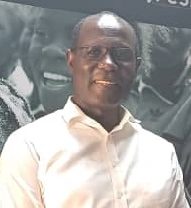
Michael Byamukama
Position: Country Director
Organisation: REPSSI Uganda
CHS Alliance is important to the sector because the standards and tools developed by the Alliance enable sector players to adopt a systematic way in the context of social accountability and promote globally acceptable governance practices.
CHS help the sector members to save the costs of using consultants to bring internal systems to globally acceptable levels since CHS Alliance looks at the governance environment holistically rather than where individual members would have used multiple consultants looking at different aspects. Also, CHS creates a platform for learning lessons and sharing experiences with other Alliance members in the sector.
What motivates you to join the Alliance’s Board?
To contribute to guiding the CHS Alliance strategic direction and provide general oversight of the implementation of the strategy, governance, functioning, advocating and actively supporting fundraising for the CHS Alliance operations and work plan activities, including promotion of accountability across the sector, contribute to providing knowledge management capacity and bringing other complementary contributions.
What experience do you have that is related to our mission?
I’m a social worker by profession and an action learner with a BA. SWSA (MAK), MBA (BSN – Netherlands), more than 25 years of progressive experience in transformative leadership, governance, policy advocacy, strategic planning, social research and programming in different organizations (CARE International, AMREF, Save the Children and REPSSI). Currently, am the Country Director of REPSSI Uganda and immediate past President of the National Association of Social Workers Uganda (2018-2024. I’m a technical member of different initiatives at both national, regional and global levels in both humanitarian and development sectors. Currently, I serve as a committee member on three boards; the Global Social Service Workforce Alliance serving the second term; the Child Protection Humanitarian Action Group, and the Uganda Internal Risk Management Group- IRMG – a body that brings together both international and local NGOs to mitigate risks and promote safeguards. I’m a University of Calgary Masters social work students’ fieldwork instructor. I was a member of high-level experts who provided technical support to the Uganda National Council for Higher Education to develop Minimum Standards for the training and education of social workers in Uganda and currently as one of the experts supporting the Inter-University Council of East Africa (IUCEA) in the development of the East Africa benchmarks for the Bachelor degree in social work.
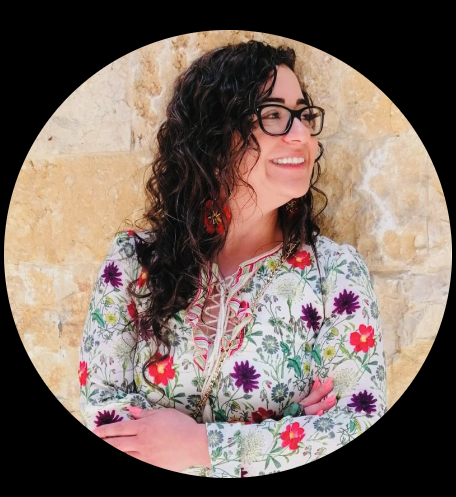
Anani Ghida
Position: Founder and Director
Organisation: ABAAD – Resource Centre for Gender Equality
The CHS Alliance provides a clear standard for delivering quality and accountable aid, which is crucial in a country facing political and economic instability, such as Lebanon. It helps organizations like ABAAD ensure that the support we provide truly meets the needs of those affected by crises. By promoting local voices and participation, the CHS Alliance strengthens our efforts to make sure that people in Lebanon are at the heart of humanitarian decisions, leading to more effective and sustainable outcomes.
What motivates you to join the Alliance’s Board?
What motivates me to join the Board is a deep commitment to ensuring that humanitarian aid is truly accountable and responsive to those who need it most. Working in Lebanon and the region, I’ve seen firsthand the impact that quality and accountability can have on people’s lives, especially in times of crisis. I want to contribute my experience to help shape a humanitarian sector that prioritizes the voices and needs of affected communities. Joining the Board is an opportunity for me to advocate for these values on a larger scale and ensure that the most vulnerable are at the center of our efforts.
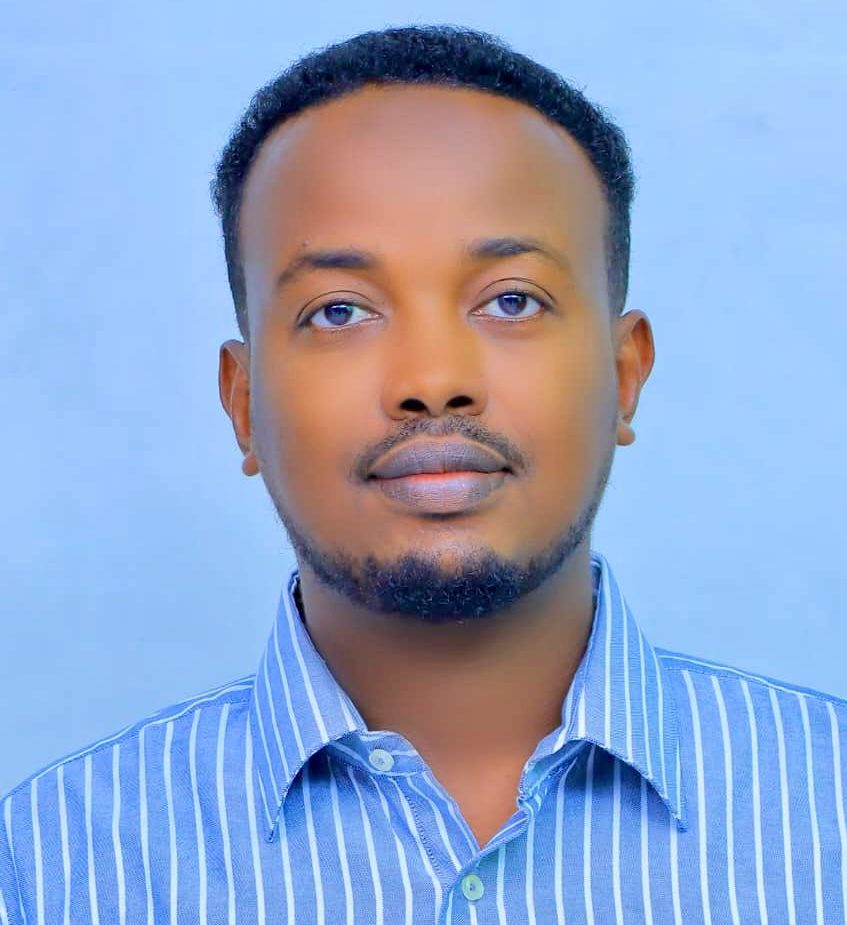
Osman Illyas Hassan
Position: Program Manager
Organisation: TAAKULO
The CHS Alliance is crucial to the humanitarian sectors as it promotes the Core Humanitarian Standards (CHS), ensuring accountability, transparency, and effectiveness in aid delivery. By standardizing practices, it enhances the quality of services and strengthens trust between organizations and affected communities. The Alliance also plays a vital role in capacity building, providing resources and training to help organizations implement the CHS. Additionally, it advocates for widespread adoption of the standard and fosters collaboration within the sector, contributing to continuous improvement and learning in humanitarian response efforts.
What motivates you to join the Alliance’s Board?
I am motivated to join the CHS Alliance’s Board by my deep passion for improving the quality and impact of humanitarian aid. I am committed to promoting accountability and transparency within the sector, ensuring that the voices of affected communities are heard and respected. My experience in leading programs has shown me the critical importance of the Core Humanitarian Standard, and I am eager to contribute to its advancement. Joining the Board would allow me to influence policy, foster collaboration, and help drive continuous improvement in humanitarian response efforts.
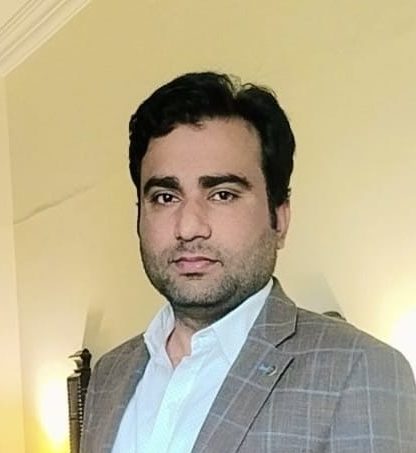
Muhammad Khalil
Position: President
Organisation: Suk Development Foundation
The CHS Alliance is vital to the humanitarian and development sectors because it establishes and promotes high standards for quality, accountability, and effectiveness. By promoting a culture of continuous improvement, the CHS Alliance ensures that organizations remain committed to delivering impactful and responsible aid to those in need. It serves as a benchmark for organizations, guiding them in adhering to best practices and ethical standards, which ultimately enhances trust and credibility. The Alliance also provides a platform for collaboration and knowledge sharing, enabling organizations to learn from each other and improve their responses to crises.
What motivates you to join the Alliance’s Board?
I am motivated to join the CHS Alliance’s Board because I am deeply committed to advancing the principles of quality, accountability, and ethical practices in the humanitarian and development sectors. My passion for ensuring that aid reaches those who need it most, most effectively and respectfully, aligns closely with the CHS Alliance’s mission. I am eager to contribute my skills and experience to help shape the strategic direction of the Alliance, collaborate with other dedicated professionals, and drive meaningful change that improves the lives of vulnerable populations globally.
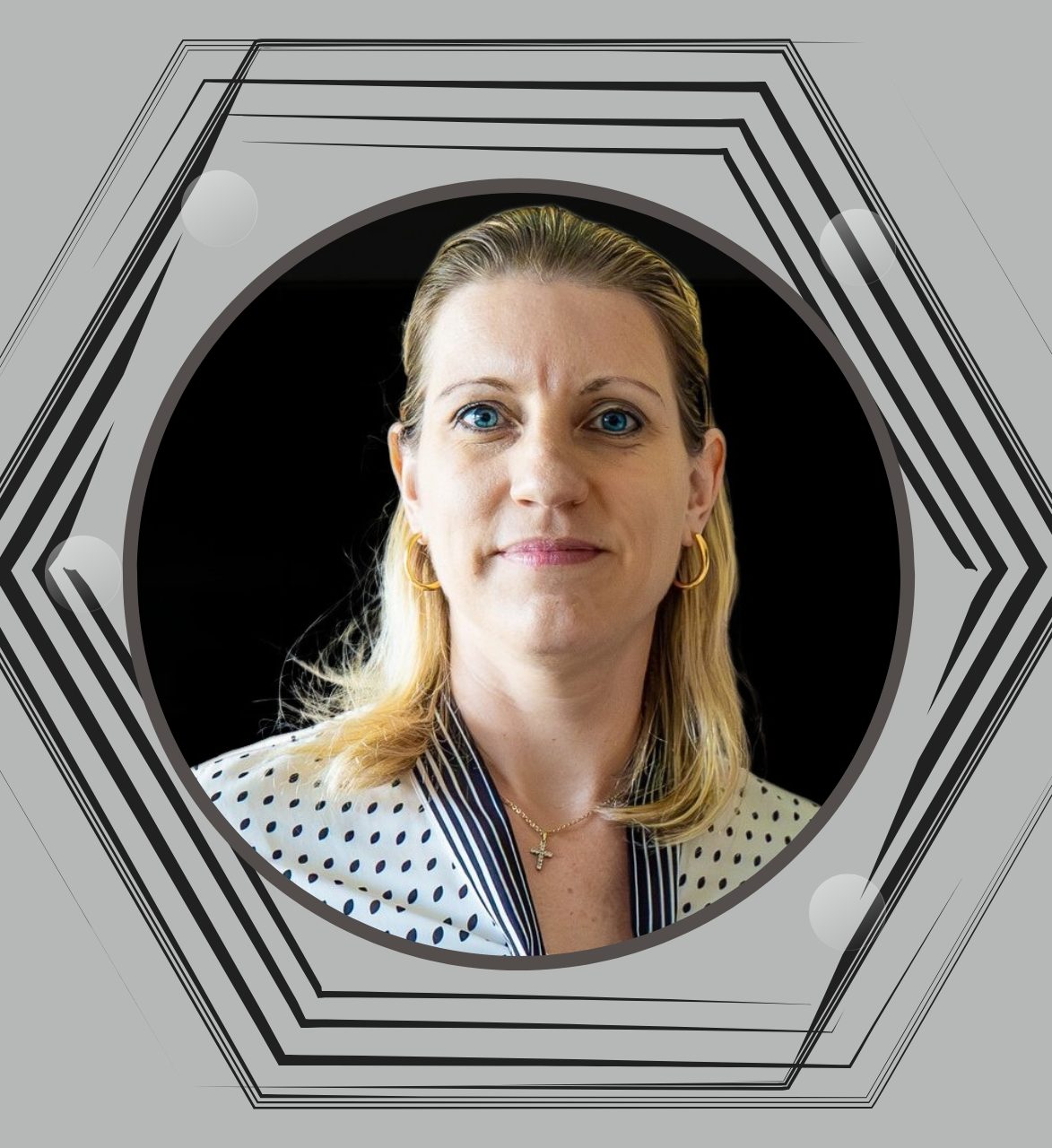
Marleen Levina Masclee
Position: Country Director Rwanda
Organisation: Trocaire
Upholding the values of the humanitarian (and development) sector can only be done when a large segment of humanitarian and development organisations globally stand together and not only commit to the highest practices, but also hold themselves and each other accountable for implementing and adhering to those. For me, this is what the CHS Alliance stands for and hence I believe the Alliance fulfils an essential role for maintaining the integrity, effectiveness, and accountability of humanitarian work worldwide.
What motivates you to join the Alliance’s Board?
As a seasoned humanitarian, I have witnessed firsthand the different ways humanitarian support is being provided. If we truly want to ensure that aid is delivered in a way that respects the rights and needs of affected populations, we need to set the bar higher for ourselves and never stop learning and improving the way we operate. I believe that the Alliance shares this believe and am therefore highly motivated and willing to dedicate time, my skills and experiences to the Board in a way to support the Alliance’s mission in building a culture of quality and accountability.
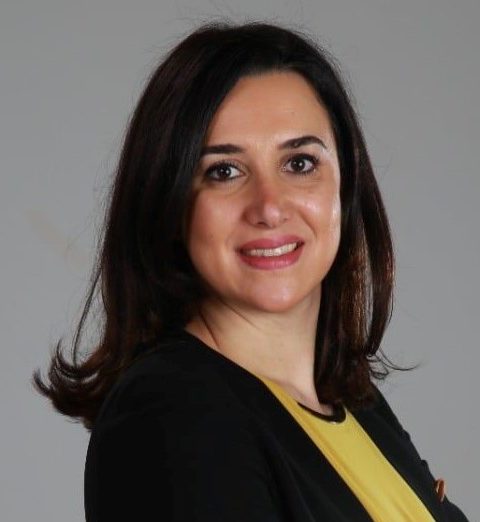
Zeina Mohanna
Position: Executive Board Member
Organisation: Amel Association International
As it ensures that the response is more accountable and more humane to all
What motivates you to join the Alliance’s Board?
What motivated me to joing the Alliance’s Board is my previous involvement with HAP and CHS, and seeing the value of the commitments to ensure that the solidarity is more participatory, humane, efficient and accountable.
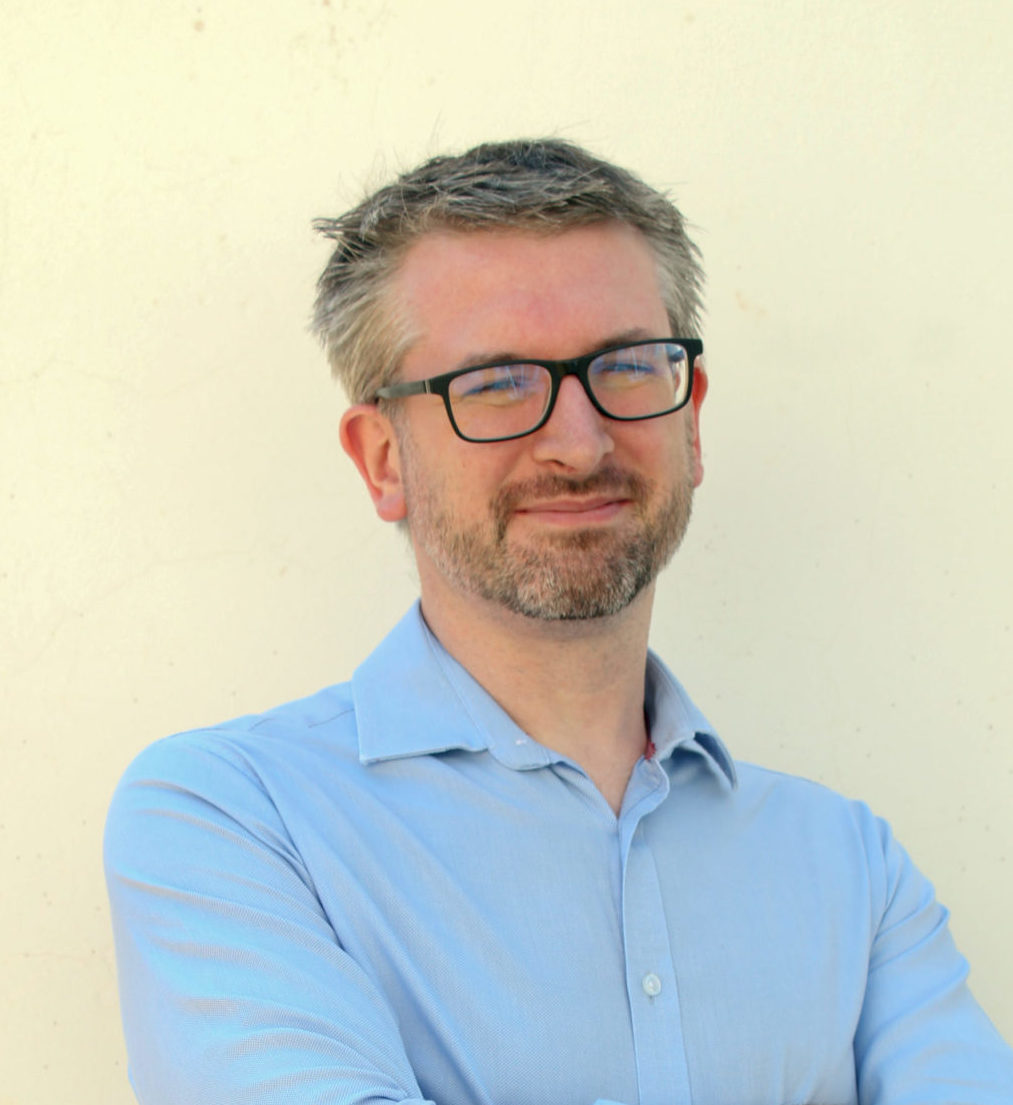
Michael Wickham Moriarty
Position: Director of Strategic Finance
Organisation: Plan International
Current CHS Alliance Board Member: Chair of Finance, Risk & Audit Committee
CHS Alliance is essential in driving improvements standards within the sector. Failures by humanitarian organisations have devastating impacts on those that they seek to serve as well as knock on negative impacts on other humanitarian organisations. High profile failures and increased scrutiny of the sector in recent years have highlighted this need.
What motivates you to join the Alliance’s Board?
I’m passionate about improving standards in the sector.I’ve lead governance reform in a series of NGOs. I believe that in too many organisations good intentions masks unprofessional behaviour. And I believe that agreeing a setting benchmarks for organisational standards drives improvements and raises expectations for the whole sector. I’d like to continue to support good governance and strong financial management at the CHS Alliance.
What experience do you have that is related to our mission?
I am the Director of Strategic Finance with Plan International. I previously worked with the Irish INGOs; Trocaire and GOAL. I am a chartered accountant and a chartered director.
I have been the Treasurer, a Board Member and the Chair of the Finance Risk & Audit committee (FRAC) of the CHS Alliance since my appointment by the Members’ Assembly in December 2021. My focus has been working with the Secretariat, the Board and the FRAC on the financial sustainability of the CHS Alliance while ensuring the Alliance is resourced to deliver on its strategy.
I undertook the Chartered Director programme with the Institute of Chartered Directors and brought my learning on corporate governance to the CHS Alliance Board.
In my time with Plan International, Trocaire and GOAL I’ve worked for INGOs at Country Office level and headquarters level. I’ve lived and worked in INGO roles in Ireland, the UK, Zambia and Sudan.
My professional focus is on financial sustainability, accountability and strengthening governance in public benefit entities. I’ve researched and written on the role of charities and philanthropy in society. I have been on the boards of two other non-profit organisations before the CHS Alliance.
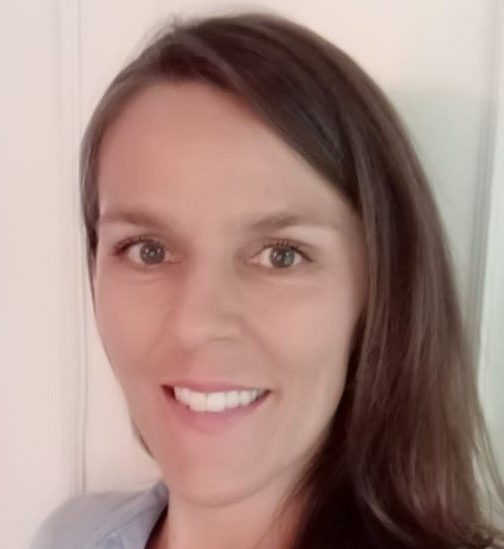
Anna Karoliina Muinonen
Position: Senior Quality and Accountability Advisor
Organisation: Finn Church Aid
CHS Alliance can offer significant value to its members, to the humanitarian system reform, and essentially to crisis-affected people. The netvvorking, training, lessons, and practical guidance offered by CHSA are crucial for members in bringing the Standard to life. The Humanitarian Accountability Report produced by CHSA is also a valuable advocacy tool.
CHS Alliance plays a vital role in driving the accountability revolution in the aid sector. A platform for collective advocacy, a network joining local and international actors, and the commitment to amplify the voices of crisis-affected people in shaping humanitarian aid are unique added values of the Alliance.
What motivates you to join the Alliance’s Board?
Being passionate about Accountability to Affected People, joining the CHS Alliance Board would be an inspiring opportunity to participate in co-creating a more accountable and equitable humanitarian system. CHSA’s current strategic priorities resonate with my views on much-needed systemic change. My experience in operationalizing the Standard and advocating for greater uptake and recognition of the CHS would add value in these areas.
Serving on the Board vvould be an exciting opportunity to leverage my skills, experience and netvvorks tovvards achieving the current strategic objectives, and contribute to charting the Alliance’s strategic direction beyond 2025.
What experience do you have that is related to our mission?
I have had the privilege of serving in crisis-affected countries for two decades, collaborating with a range of stakeholders, including local organizations, INGOs, UN agencies, local authorities, donor agencies, and crisis-affected communities themselves.
Experienced in program management, capacity strengthening, strategic planning, and INGO leadership, I understand the global humanitarian system and the potential of local organizations as first responders and agents of change. I have developed partnership models that operationalize the Principles of Partnership and have been a key contributor to FCA’s Localization Framework. With a diploma in Humanitarian Diplomacy and experience liaising with diverse stakeholders on humanitarian issues, I bring in advocacy skills for systemic change.
Currently, as FCA’s Senior Quality and Accountability Adviser based in Nairobi, I help FCA operationalize its commitment to quality and accountability as CHS-certified organization, and support our Country Programs in delivering on the CHS commitments within diverse contexts. As CHSA-trained SEA investigator, I support the establishment of safeguarding mechanisms and coordinate FCA’s CHS audits with HQAI.
Throughout my career, accountability to affected people, and recognizing the agency of crisis-affected people have guided my work. I’d be honoured to contribute my experience and commitment to advancing the mission of CHS Alliance.
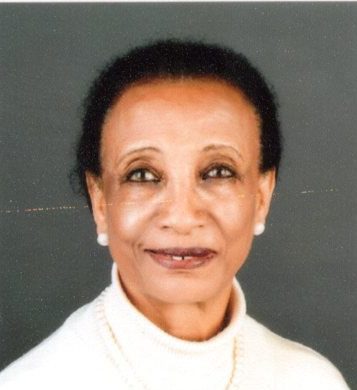
Amsale Mulugeta Alemu
Position: Executive Director
Organisation: Education for Sustainable Developemnt (EDS)
Core Humanitarian Standard is a vital framework on quality, accountability and transparency that can ensure that humanitarian assistance is effective, efficient, accountable and transparent. It can enhance accountability and transparency; improve the quality of services to ensure the timely and quality of humanitarian response services. It can promote accountability to the stakeholder particularly to affected communities by ensuring that their actions are transparent fostering credibility with beneficiaries, donors and partners. It encourages improvements to ensure high quality of humanitarian response; it builds capacity to manage risks and build resilience and ensures that ethical standards are in place. So for NGOs and other humanitarian Organizations adhering to CHS principles is indispensable.
What motivates you to join the Alliance’s Board?
Passion for Humanitarian Work : A personal commitment to humanitarian principles and a passion of serving those in need drive the motivation to join the sector Ethiopia faces numerous challenges, including conflict, displacement, food insecurity, and health crises. The motivation to establish an NGO stems from a desire to address these urgent humanitarian needs and to make a tangible difference in the lives of vulnerable populations. Beyond immediate relief, there is a motivation to contribute to long-term, sustainable development in Ethiopia. By focusing on child development education, skills development, social, cultural economic empowerment, environment protection and renewable energy and humanitarian response an NGO can help build resilient and empowered communities capable of overcoming future challenges.
As a founder, there is a unique opportunity to introduce innovative approaches and strategies for impact that can enhance the effectiveness of humanitarian interventions. It provides a platform to advocate for systemic changes and policy reforms that address root causes of humanitarian issues. This includes engaging with government bodies, international organizations, and other stakeholders to drive positive change at a broader level
What experience do you have that is related to our mission?
My professional experinces highlights a commitment to promoting the rights and dignity of vulnerable communities affected by natural disaster,conflict and poverty.
At the Pestalozzi Children’s Foundation (1974-2003), efforts centered on intercultural education, support and guidance to youth from diverse backgrounds, working with conflict affected children and adults from Palestinia, Lebanon, Bosinia and Herzegovina and managing initiatives for migrants. This foundation laid the groundwork for promoting self-independence and integrating marginalized populations.
In leadership roles, ensuring that programs effectively addressed community needs while maintaining quality control, transparency, inclusivity and accountability in partnerships
Founding of Education for Sustainable Development (ESD) in 2007 in Ethiopia Executive Director
ESD is, a development and humanitarian organization, working in the field of child development, education, youth skills development and job creation, girls and women empwoerment, humanitarian response and resilience.
Mission of ESD “creating a bright future for disadvantaged children, girls, youth, women, and communities is highly relevant. Its approach is based on humanity, equality inclusivity and non-discrimination.
In light of the Core Humanitarian Standard (CHS) mission and core values.
Here’s how the two align:
Respect for Rights and Dignity: By targeting marginlized groups, championing for their rights and helping to restore their dignity.
Addressing vulnerability The emphasis on children, girls, youth, and women highlights the specific vulnerabilities faced by these groups in Ethiopia, especially in contexts of poverty and conflict ensuring that sasssitance is tailored to those in need.
Relevance: By building a culture of quality and accountability, ESD can ensure its programs are effective and impactful which is crucial for achieving sustainable outcomes for beneficiaries. ESD´s operations, ensure that assistance is delivered based on need without discrimination.
ESDs mission to empower disadvantaged by involving communities in the design and implementation of interventions. This participatory approach is essential for fostering resilience and self-sufficiency among beneficiaries based on humanity, impartiality, independence, accountability and neutrality.
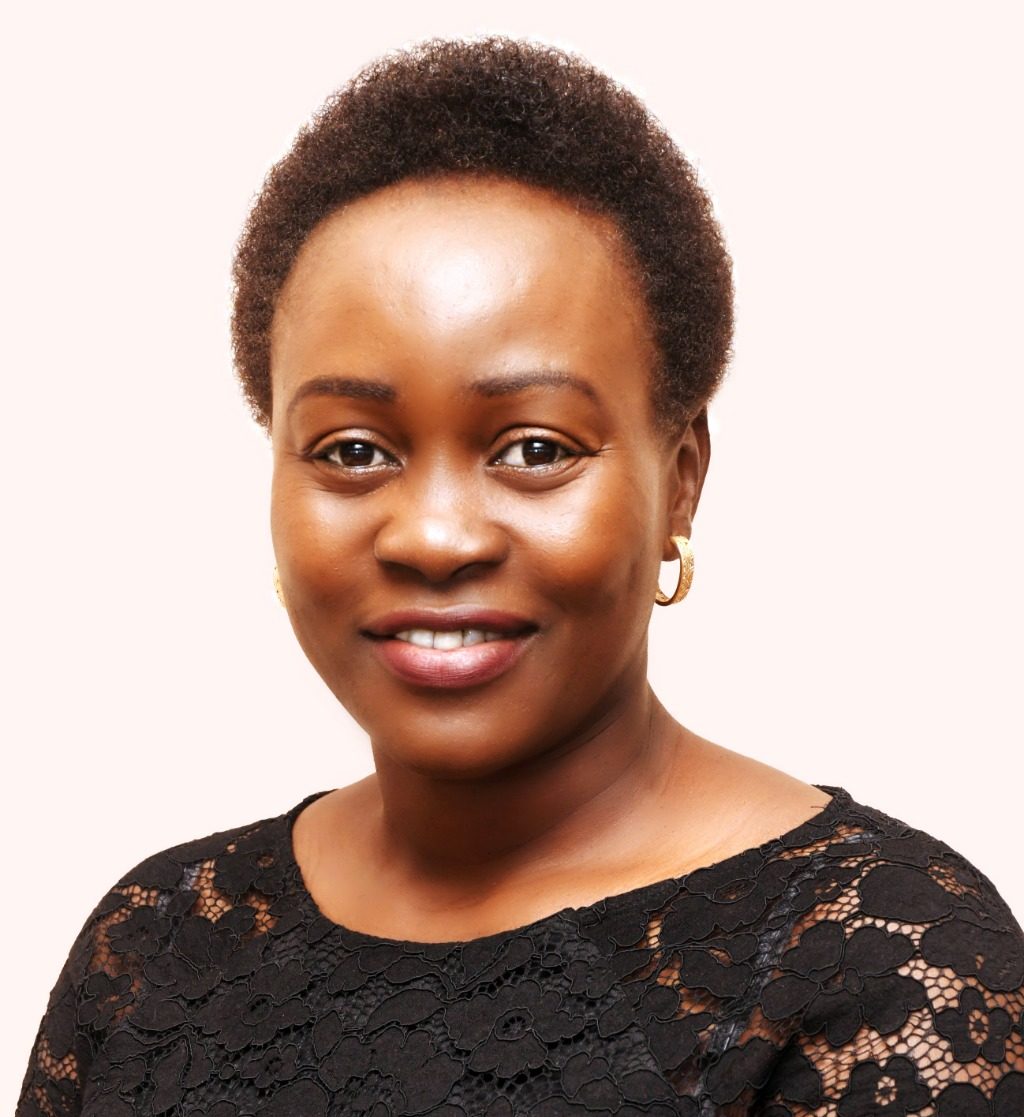
Susan Otieno
Position: Executive Director
Organisation: ActionAid International Kenya
Current CHS Alliance Board Member: Chair of Membership & Nominations Committee
The CHS Alliance is hugely important to the sector as it drives organisations to more accountable and effective programmes. With a breath of supporters of the Standard, the Alliance brings together actors from the sector to push to make aid better work better for the people, and to put affected communities at the core of decision-making and action in the aid sector. Its commitment to continuous improvement enables all types of organisation to regularly challenge their processes on centering the rights and dignity of people within humanitarian interventions. The standards enables affected communities, their organizations hold organizations, their employees accountable
What motivates you to join the Alliance’s Board?
With 20 years of experience in civil society across Africa, I am deeply committed to ensuring that the most marginalized voices are heard and can drive meaningful change. I am motivated to continue to sit on the CHS Alliance Board to drive the CHS as a vital standard across the sector, and guarantee that people remain central to all decisions affecting them and their organizations. This is an exciting time to reaffirm my commitment to the Alliance’s Board; providing my insights and witness the journey of the new Standard’s iteration would be an honour and a privilege.

Sarah Pelicaric
Position: Head of People Operations
Organisation: CAFOD
Current CHS Alliance Board Member: Chair of People & Culture Committee
The CHS is important to the sector as it has developed a robust standard for us all to be held accountable to. It has developed best practice in many areas, particularly around SEAH and accountability. It also provides communities of practice for the sector to learn and reflect on their work. The newly revised standard and LOCALE projects will enable further reach to smaller more local NGOs and help provide a global standard of good practice.
What motivates you to join the Alliance’s Board?
I have already completed one term of office on the Board and would like to continue for one further term.
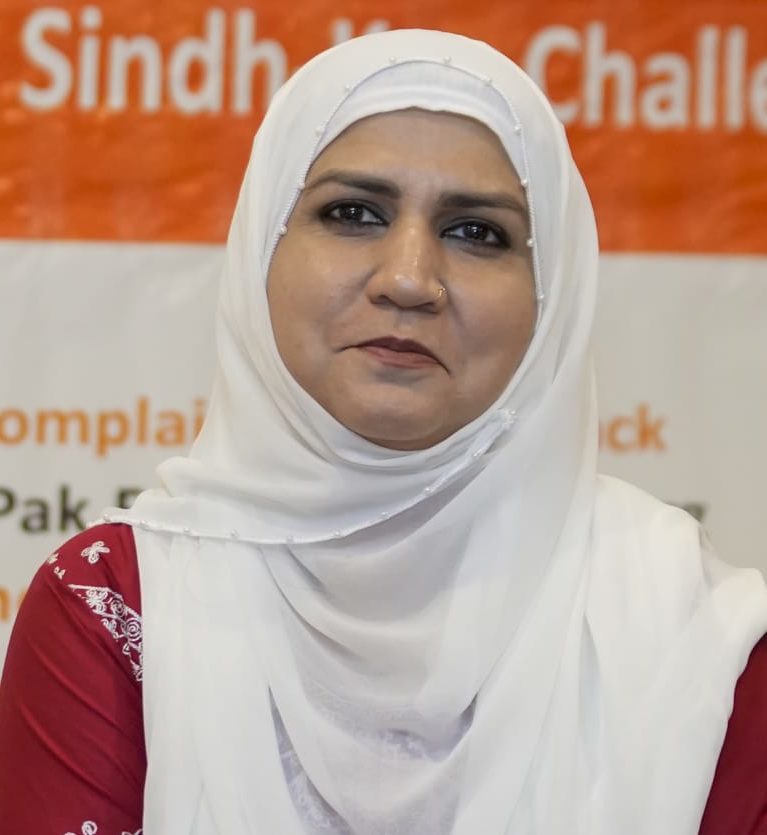
Fozia Rajput
Position: Executive Director
Organisation: Fast Rural Development Program (FRDP)
The CHS Alliance provides globally recognized framework that outlines the essential elements of principled and effective humanitarian action promotes the Core Humanitarian Standard on Quality and Accountability (CHS) and places strong emphasis on accountability to affected populations, donors, and other stakeholders. By following the global standards of CHS, organizations can systematically assess and improve their processes, ensuring that their interventions are effective, relevant, and responsive to the dynamic needs of crisis-affected populations.
What motivates you to join the Alliance’s Board?
The CHS Alliance brings together a diverse global membership of NGOs, UN agencies, donors, and other stakeholders and fosters collaboration and learning across the humanitarian and development sector. This collective approach will help us to share best practices, innovate, and drive improvements in humanitarian response globally. Additionally, the CHS Alliance offers training, resources, and support to organizations and individuals within the sector. This will help to build the capacity of our staff to implement the global humanitarian standards effectively, leading to more consistent and professional responses in the field.
What experience do you have that is related to our mission?
I have been actively involved in the humanitarian sector for 18 years, and this experience drives my motivation to join the CHS Alliance Board to promote and uphold the Core Humanitarian Standard (CHS). I strongly believe that placing affected communities at the center of our work is crucial for delivering impactful and dignified assistance.
In my current role as Executive Director of the Fast Rural Development Program, I have led initiatives to strengthen organizational capacity, improve service delivery, and ensure alignment with CHS commitments. I prioritize transparency, inclusivity, and facilitating opportunities for other organizations to learn and share experiences, helping them align their policies with CHS principles.
Our experience with CHS has inspired numerous local organizations to pursue CHS membership and enhance their humanitarian response based on assessments. Key initiatives include:
- Sharing the importance of CHS at national humanitarian forums to improve response strategies.
- Participating in global online discussions to promote accountability in emergency responses through the self-assessment process, helping other organizations learn from our experiences.
- As a partner of the Together Project, implemented across 8 countries, we have supported peer organizations in obtaining CHS membership by providing orientations and reference letters.
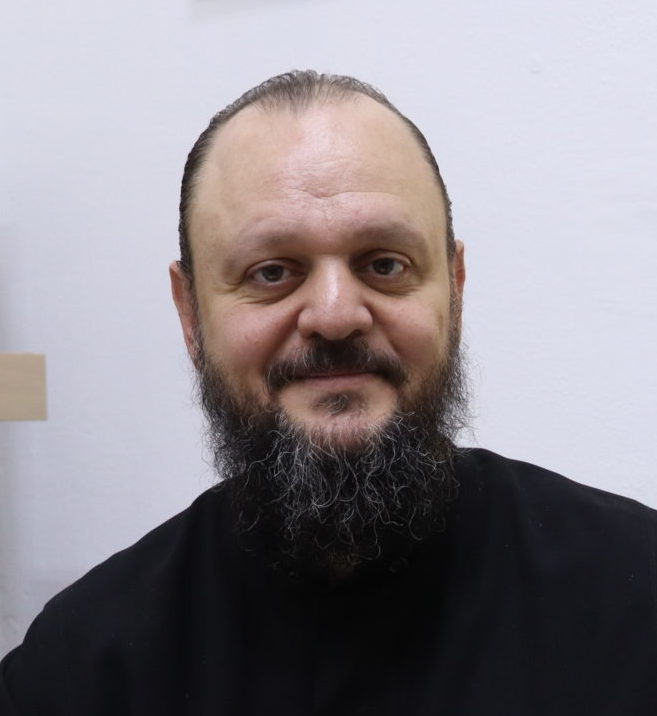
Youseph Shattahi
Position: Director-General
Organisation: Gopa Derd
Because it provides clear tools to measure the performance.
What motivates you to join the Alliance’s Board?
Being the largest faith base organisation in Syria, it is critical now to gain experience, and to share our experience as an NGO working in the middle of a crisis, and learning from others how to find solutions in different contexts without affecting our accountability in front of: beneficiaries, staff and partners.
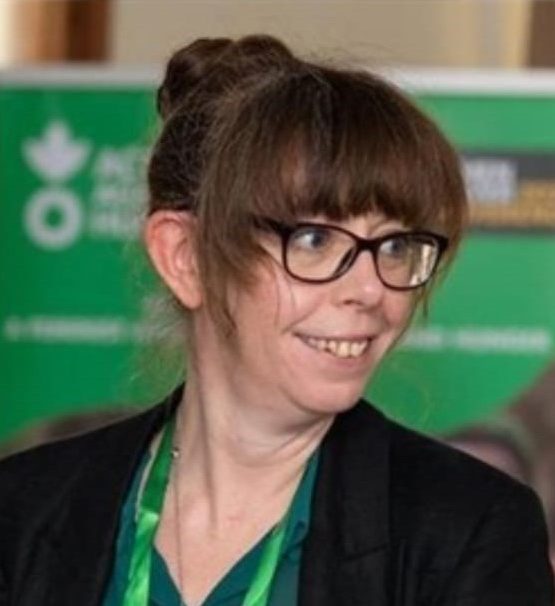
Catherine Skehan
Position: Head of Evaluation, Learning and Accountability
Organisation: Action Against Hunger
The CHS Alliance is the only organisation dedicated to prioritising quality and accountability in discussions surrounding key issues within the humanitarian and development sectors. The efforts made by the CHS Alliance – from the Inter-Agency Standing Committee (IASC) to INGOs to local and national organisations – significantly contribute to ensuring that individuals and communities benefit from high-quality programmes that include robust accountability mechanisms. The newly introduced CHS Framework presents the CHS Alliance with an opportunity to maintain its leadership role in the evolution of accountability within the humanitarian and development sector. It underscores the importance of ensuring that, particularly during periods of budgetary constraints, quality and accountability remain central considerations.
What motivates you to join the Alliance’s Board?
I have been passionate about quality and accountability throughout my career. I have seen and experienced the CHS from almost every angle, and I am deeply familiar with the challenges members and local partners face, and the vital opportunities that the CHS offers. I believe that the new CHS Framework offers an opportunity for local and national organisations to demonstrate the excellent work they already do in this area, making progress on sectorwide commitments to localisation and valuing the role of local and national organisations, while also offering donors and funders a framework for putting CHS at the centre of their processes.
I am excited to bring the skills and experience I have acquired over the last decade to actively contribute to the CHS Alliance during this next exciting phase.
What experience do you have that is related to our mission?
I have 18 years’ experience working in the humanitarian and development sector, predominantly with partnership-based international non-governmental organisations (INGOs) based in the Global North. For the past 10 years, I have focused on implementing, supporting and verifying against quality and accountability systems, especially the CHS, to improve programmes for people and communities. I have worked with three INGOs, multiple local and national partners, donors, and the IASC and I even trained as an HQAI auditor. I have worked across the humanitarian and development system using the CHS as a framework to advocate for people and communities to be at the centre of all decision-making.
I believe that the experience I have acquired over the last 10 years will enable me to understand the perspectives of multiple stakeholders and the barriers and opportunities that they face when trying to implement or adopt the CHS. Throughout my career I have always ensured that I come back to those at the heart of work, people and communities. I believe that my experience driving change using the CHS will be an invaluable contribution to the CHS Alliance Board of Trustees.

Thomas Stahl
Position: CEO
Organisation: Ena (formerly Tearfund Switzerland)
By setting and being accountable to standards of attitude, work, and behavior, the expectations and aspirations are clearly defined. These standards guide organizations in implementing programs in collaboration with all project stakeholders and provide donors with the confidence to fund a serious and trustworthy cause.
What motivates you to join the Alliance’s Board?
I noticed that there are still names being sought for the nomination. Upon closer look and a brief inquiry, I found out that the skills being sought are ones that I possess and would be happy to contribute. I am connected with several CHS members and can, therefore, gather feedback and concerns directly and personally. I enjoy working with an international team. Although our organization has only recently become a CHS member, we have been aligning our work with CHS since its inception. CHS is important to me because it made my entry into this field easier. As a career changer, the Sphere Project was the first book I read cover to cover. It taught me how to approach this work meaningfully. I later followed the development of the CHS. Therefore, my participation would also be a way to express my gratitude and acknowledge to all the partners, both international and local NGOs, who have been involved and who will continue to benefit from CHS in the future.
What experience do you have that is related to our mission?
With a strong commitment to quality management and over a decade of experience in humanitarian and organizational development, I am prepared to support CHS Alliance as a board member. In my leadership roles—from Program Manager to CEO of ena —I have developed strategic, organizational, and communication skills to foster impactful, well-structured practices. In every role, embedding quality management into each employee’s daily responsibilities has been essential, transforming it from a requirement into a valued, ongoing learning process.
My decision-making is guided by a clear strategy that prioritizes team cohesion, balances cost-efficiency, and minimizes bureaucracy, ensuring each process serves a purpose without becoming burdensome. While I have not experienced war or disaster firsthand, I understand the effects of personal crises through past family health challenges that led to sudden loss of stability. This has deepened my empathy and commitment to crisis-sensitive, people-centered solutions.
My experience spans fundraising, advocacy, and donor relations, providing practical insights across diverse management areas. My strongest contributions lie in organizational development, where I focus on both product enhancement and strategic branding. Additionally, my board experience, particularly with the Integral Alliance, has fostered close relationships with several CHS-implementing organizations, enabling me to support CHS Alliance’s mission effectively.
INDEPENDENT CANDIDATE

Michael Barnett
Position: University Professor
Nominating Organisation: Lutheran World Federation
CHSA is represents the hope for improving quality and accountability to affected populations in humanitarianism. In a sector in which upward accountability smothers downward accountability, there is currently no other actor in the sector that can help level the playing field. Also, the revision process has not only strengthened its role but also allows it to make more progress against the considerable headwinds.
What motivates you to join the Alliance’s Board?
I firmly believe that the academic role comes with both privileges and a responsibilities. It is my privilege to be able to spend so much time thinking and writing on subjects of great urgency and importance. But for what purpose? Our privilege comes with a responsibility to try and inform public debates and actions where we can. This can only be done, though, if we can communicate in ways that make sense to public actors and publics. Serving on the board allows me to fulfill my responsibilities and help the cause wherever and however I can.
